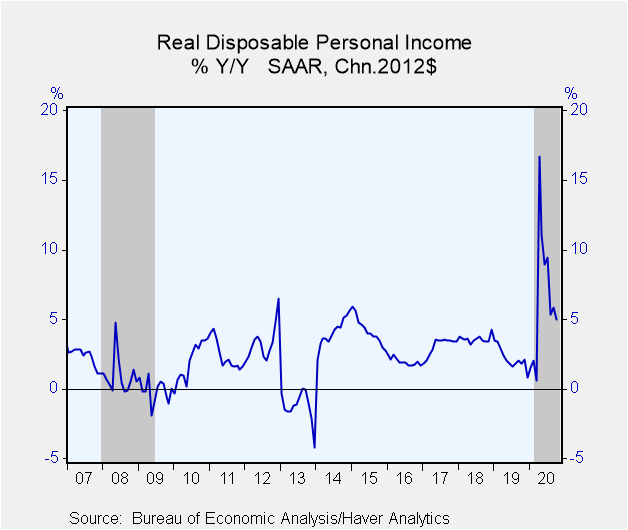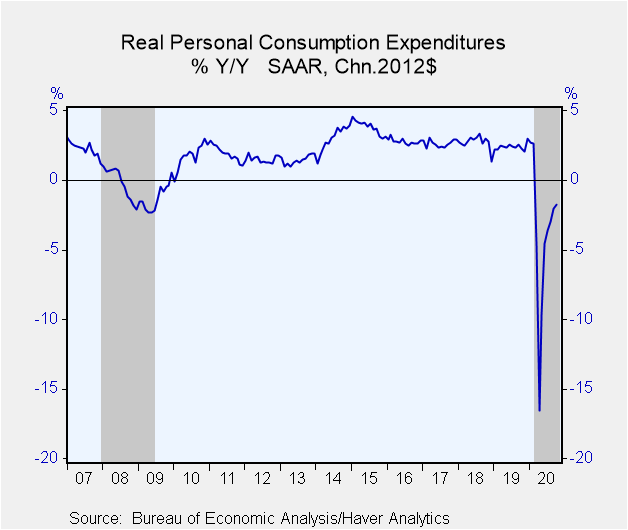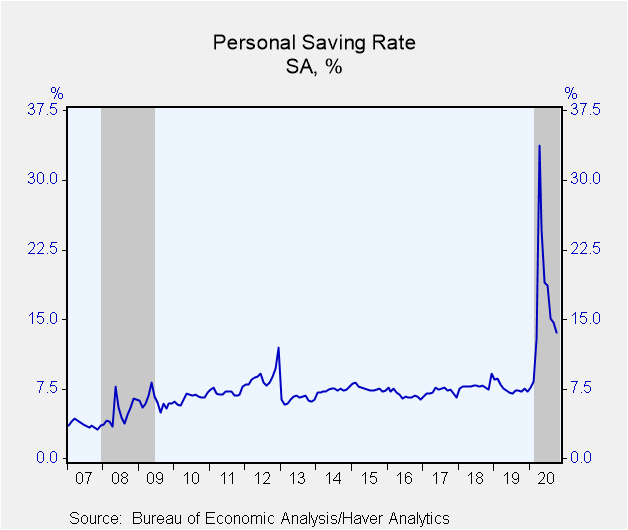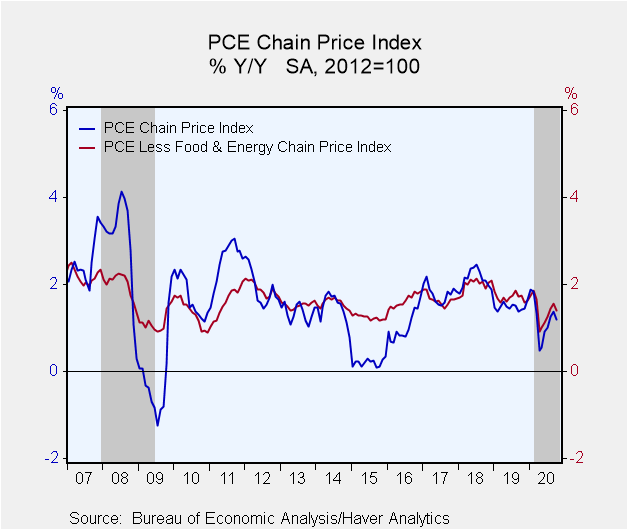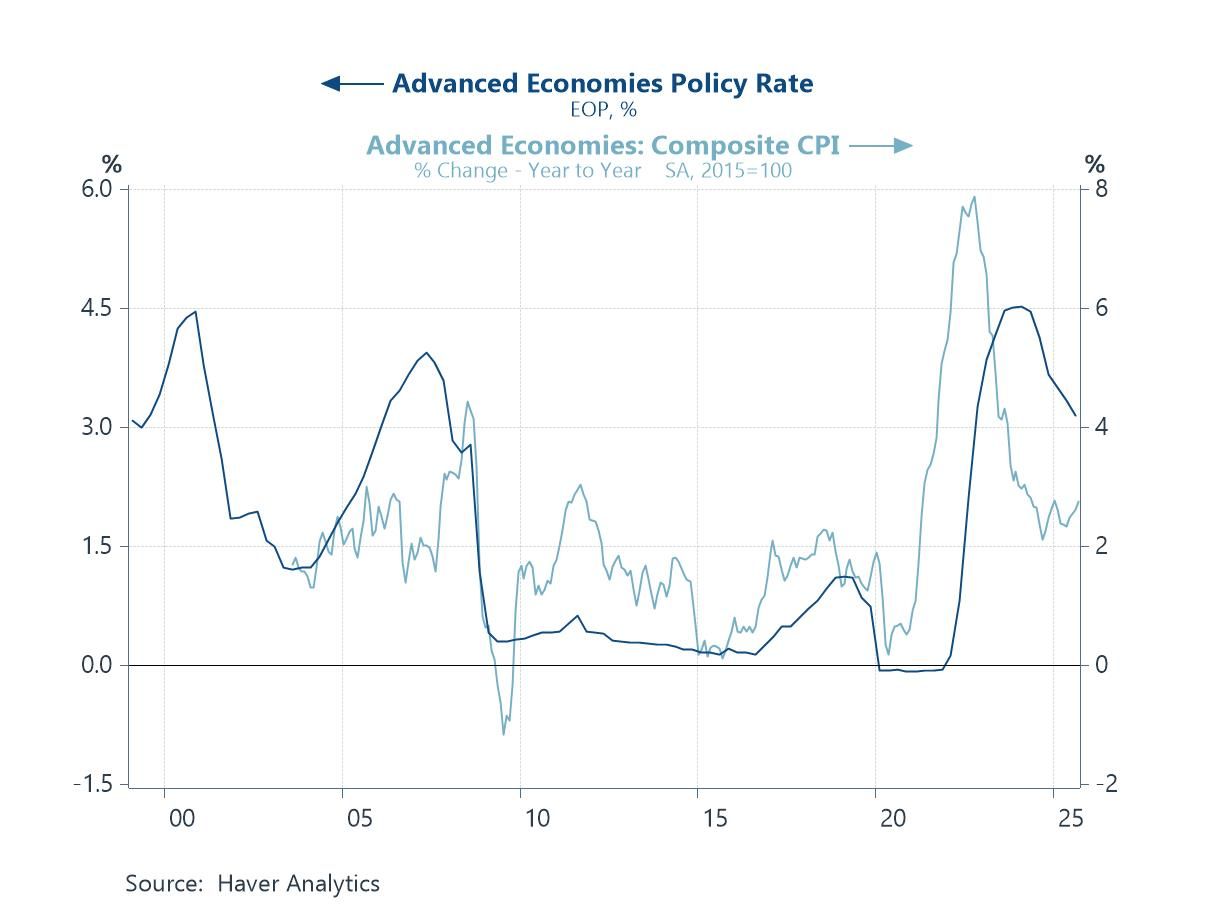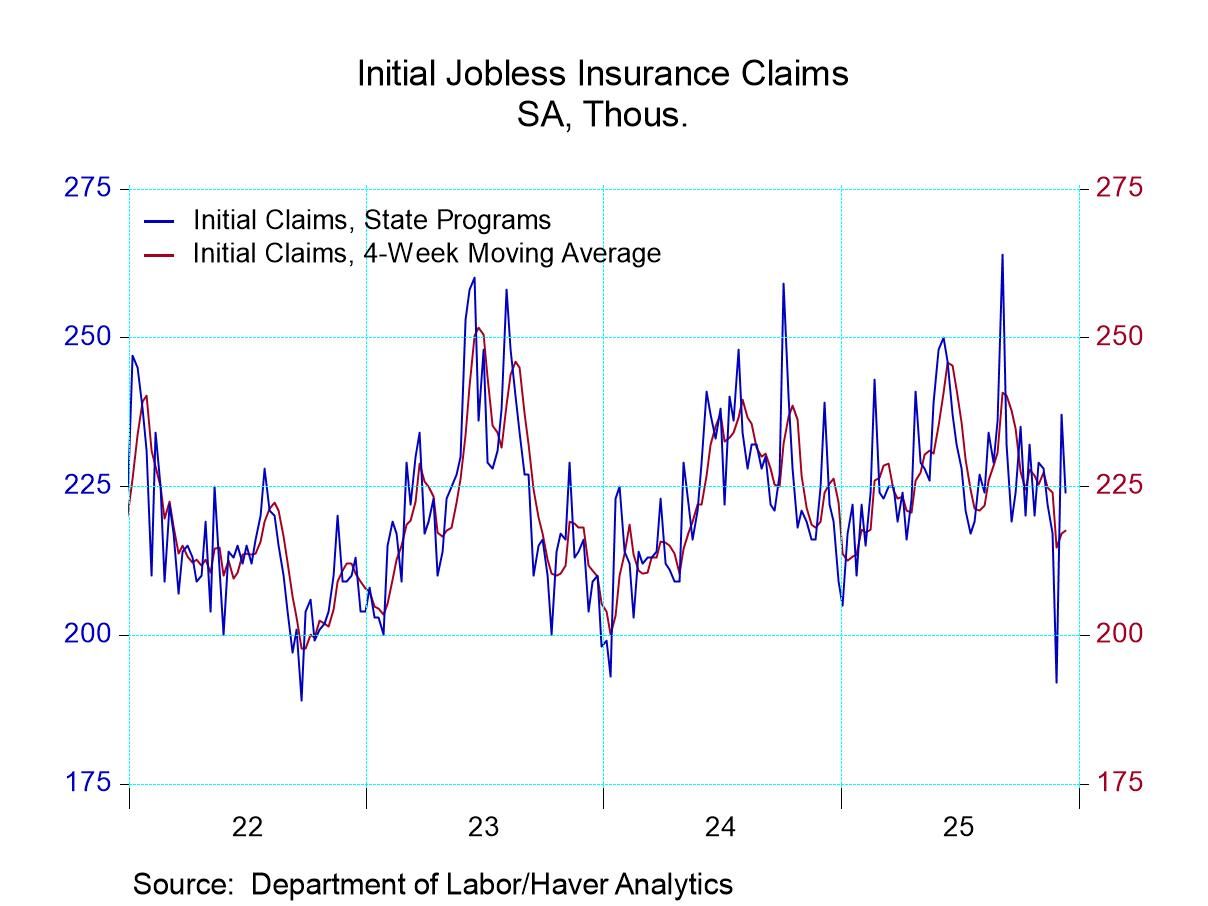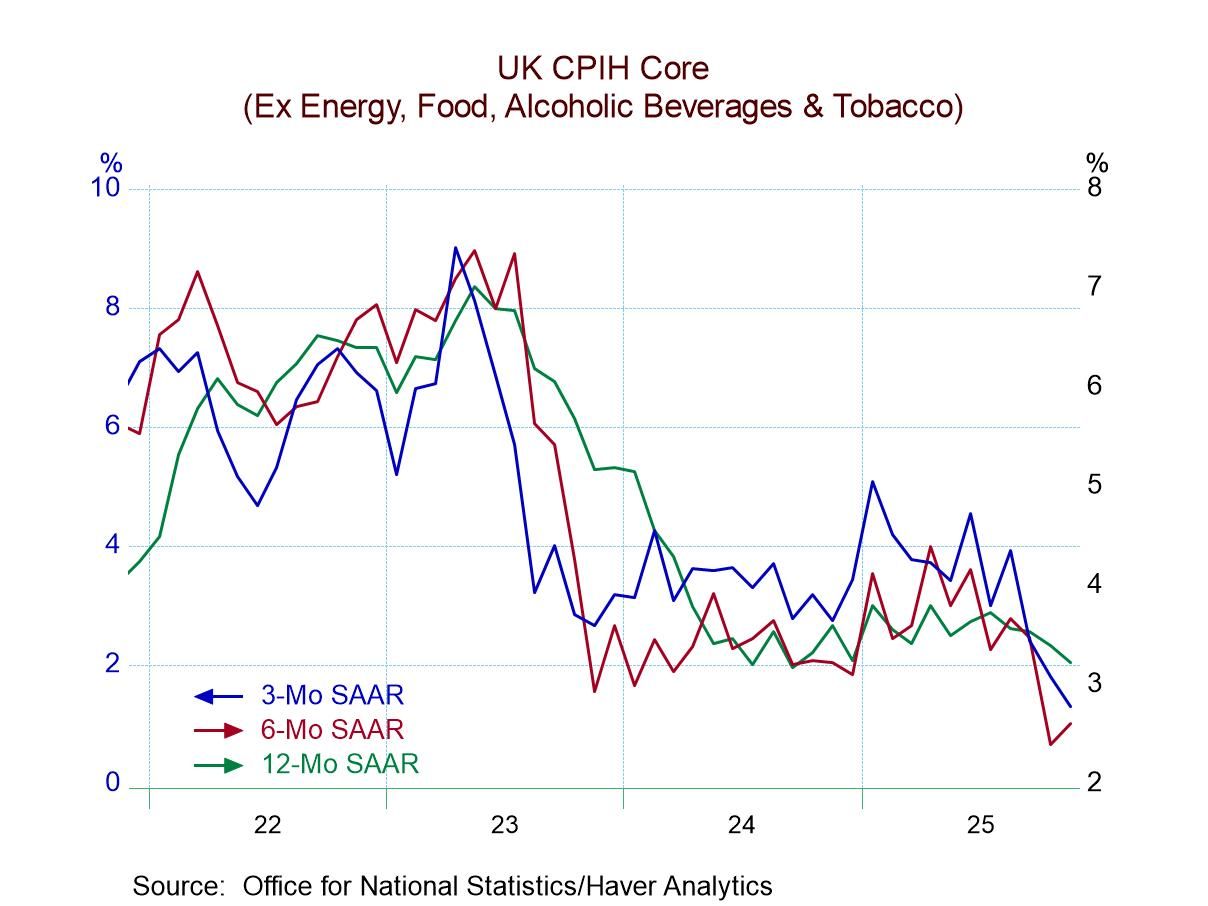 Global| Nov 25 2020
Global| Nov 25 2020U.S. Personal Income Declines While Spending Growth Moderates During October
by:Tom Moeller
|in:Economy in Brief
Summary
• Decline in income reflects fewer government transfer payments. • Spending strength reflects higher services outlays. • Prices remain steady. Personal income declined 0.7% during October (+5.5% y/y) following a 0.7% September rise, [...]
• Decline in income reflects fewer government transfer payments.
• Spending strength reflects higher services outlays.
• Prices remain steady.
Personal income declined 0.7% during October (+5.5% y/y) following a 0.7% September rise, revised from 0.9%. A 0.1% dip had been expected in the Action Economics Forecast Survey. Government payments for unemployment compensation fell sharply for the fourth straight month, off 14.1%. (The Federal government unemployment compensation add-on in the CARES Act expired in August and has not been renewed). Employee wages & salaries rose 0.7% (2.1% y/y) after rising 0.9% in September as employment increased. Proprietors' income jumped 1.2% (14.5% y/y) and rental income rose 0.5% (3.3% y/y). Income from assets improved 0.7% (-3.5% y/y) as dividend income gained 1.0% (-3.6% y/y). Disposable personal income fell 0.8% (+6.2% y/y) last month and reversed September's 0.7% increase. Adjusted for price inflation, real disposable income fell 0.8% (+5.0% y/y) after rising 0.6%.
Personal consumption expenditures increased 0.5% during October (-0.6% y/y) after two consecutive months of 1.2% increase. This was the smallest of six consecutive monthly increases after the sharp declines in March and April. A 0.4% rise had been expected. Adjusted for inflation, real spending increased 0.5% (-1.8% y/y) in October. The rise in spending reflected a 0.6% increase (-6.3 y/y) in services outlays. Recreation services spending strengthened 2.6% (-27.2% y/y) while foods services & hotel outlays eased 0.4% (-17.9% y/y). Health care outlays rose 0.5% (-4.0% y/y) while housing & utilities spending rose 0.3% (1.4% y/y). Real spending on goods increased 0.2% (8.5% y/y) as spending on durable goods increased 0.8% (14.7% y/y). Recreational goods & vehicles outlays surged 1.5% (25.4% y/y). Nondurable goods outlays were little changed (+5.2% y/y) as clothing spending fell 0.8% (2.2% y/y).
Last month's rise in spending relative to income lowered the personal saving rate to 13.6% from 14.6% in September, revised from 14.3%. The rate reached a record high 33.6% in April. The level of personal saving fell 7.8% (+101.4% y/y).
The PCE chain price index held steady (1.2% y/y) in October following an unrevised 0.2% September increase. The price index excluding food and energy was little changed (1.4% y/y) after an unrevised 0.2% increase in September. Energy prices increased 0.1% (-9.6% y/y), the smallest of five consecutive monthly gains. Food & beverage prices also improved 0.1% (3.8% y/y) after declining for three straight months.
The personal income and consumption figures are available in Haver's USECON database with detail in the USNA database. The Action Economics figures are in the AS1REPNA database.
Tom Moeller
AuthorMore in Author Profile »Prior to joining Haver Analytics in 2000, Mr. Moeller worked as the Economist at Chancellor Capital Management from 1985 to 1999. There, he developed comprehensive economic forecasts and interpreted economic data for equity and fixed income portfolio managers. Also at Chancellor, Mr. Moeller worked as an equity analyst and was responsible for researching and rating companies in the economically sensitive automobile and housing industries for investment in Chancellor’s equity portfolio. Prior to joining Chancellor, Mr. Moeller was an Economist at Citibank from 1979 to 1984. He also analyzed pricing behavior in the metals industry for the Council on Wage and Price Stability in Washington, D.C. In 1999, Mr. Moeller received the award for most accurate forecast from the Forecasters' Club of New York. From 1990 to 1992 he was President of the New York Association for Business Economists. Mr. Moeller earned an M.B.A. in Finance from Fordham University, where he graduated in 1987. He holds a Bachelor of Arts in Economics from George Washington University.


